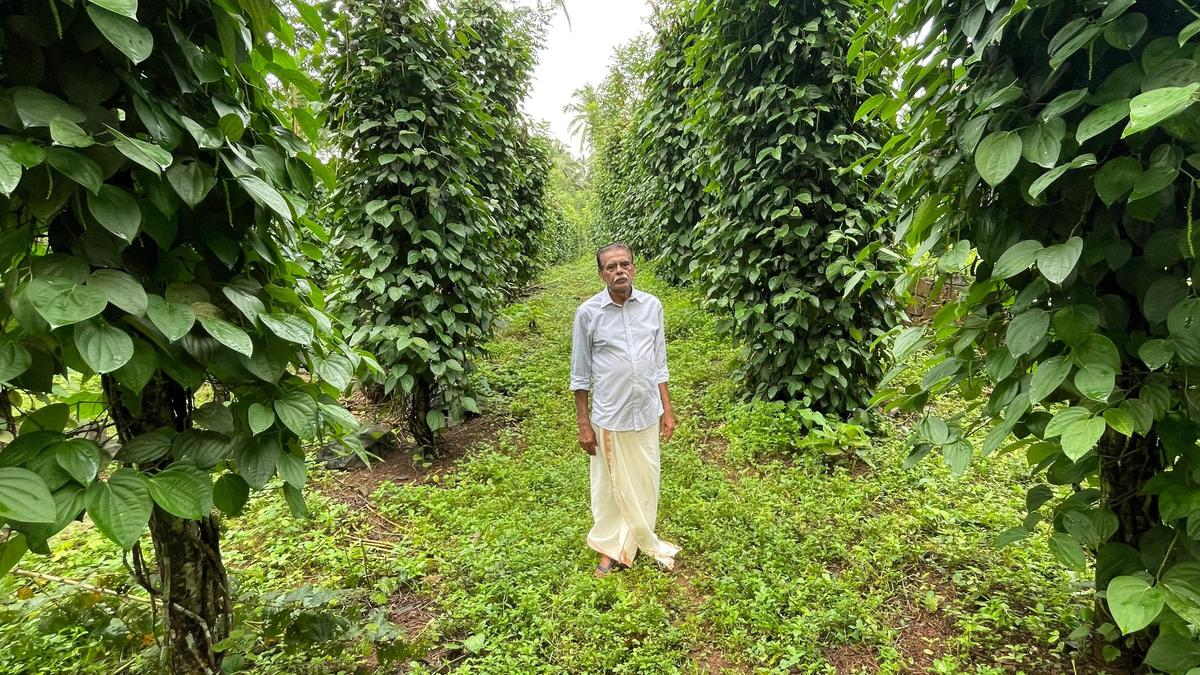
Meet the Kerala farmer brewing India’s first tender coconut wine
The Hindu
Sebastian P Augustine from Kerala innovates by producing unique wines from tender coconut and other tropical fruits.
Sebastian P Augustine, a former government employee, settled in his ancestral property, spread across 15 acres, at Bheemanady, Kasaragod, over six decades ago. Having spent a significant part of his life at Vempally in Kottayam, he decided to start farming post retirement, planting crops such as rubber, pepper, cocoa, coconut and even exotic fruits such as dragon fruit and avocado.
In the early 2000s, the coconut trees on his field were infested by eriophyid coconut mite, an insect-like organism that affects coconut production. Officials from the Department of Agriculture advised him to pluck karikku (tender coconut) in large quantities, to keep the infestation in check.
With so much tender coconuts at his disposal, he decided to prepare wine. “I made karikku wine at home for the first time in 2004,” says Sebastian. “Earlier, I had attended a course on food processing. It was there that I learnt how to make wine from jackfruit. I used the same process here.”
Apart from tender coconut, the wine also contain around 25% of other fruits, such as dragon fruit, jackfruit, mango, and pineapple, depending on their availability. “These are added to attain an optimum amount of pectin to make the wine strong,” says Sebastian over a phone call.
It requires 1000 coconuts to make 250 litres of the product, he explains.
The wine has alcohol content from 12.5 to 15% and takes around 10 to 28 days for fermentation. “Coconut water and flesh don’t take much time to ferment when compared to grapes,” says Sebastian.
Sebastian is also planning on producing a wide range of wines made from different fruits available in his field. “We’ll have premium and premium plus variety. We’ll also be making wines with spices added to them,” says Sebastian.

Vaishnaw credits Make-in-India push for Bengaluru plant after Rahul Gandhi touts Karnataka ecosystem
Vaishnaw credits Make-in-India for Bengaluru's success, acknowledging Rahul Gandhi's praise of Karnataka's thriving business ecosystem.












